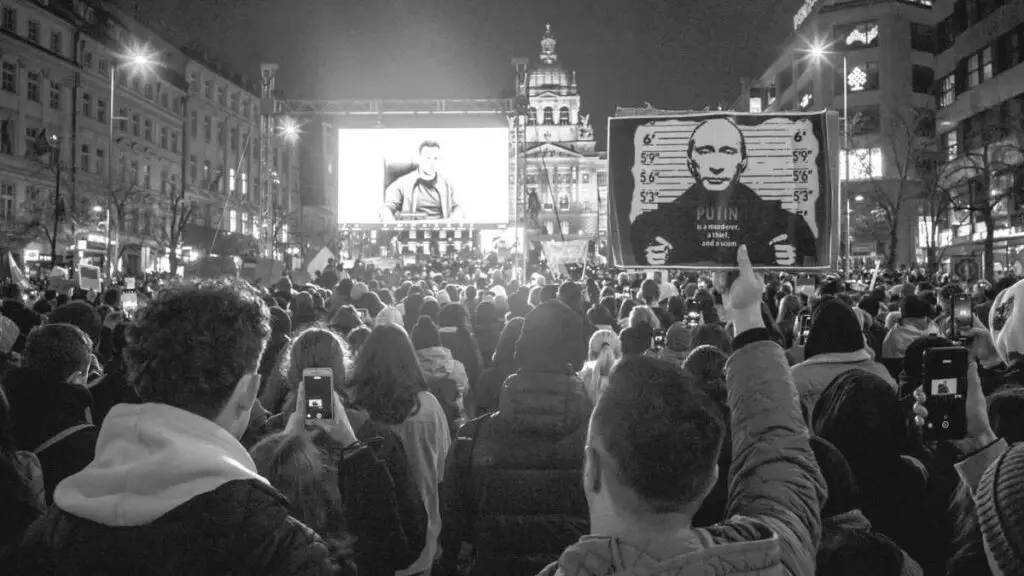By Geoffrey Cain
Washington Monthly
Jul 1, 2011
What the first systematic survey of North Korean refugees tells us about life inside the Hermit Kingdom, and about whether the regime might be ready to fall.
Ever since the founding father of North Korea, Kim Il Sung, unexpectedly died of a heart attack in 1994, pundits and policymakers have announced the same news every year: the collapse of the world’s most repressive and recondite government is imminent. In the middle of a famine in 1997, for instance, a CIA panel concluded that the regime of Kim Jong Il would fall within five years. Seven years later, near the Chinese border, an explosion ripped through a train station Jong Il had traveled through just eight hours earlier. Some Korea watchers proclaimed that the blast was an assassination attempt, and a precursor to insurrection. The explosion, it turned out, was caused by a chemical leak.
Even though the world’s most militarized country has not yet disintegrated, analysts were prudent to warn that the conditions for sudden ruin were in place. In the past two decades, North Koreans have struggled through famine, floods, political prison camps, and a slipshod currency reform. Now they’re faced with an increasingly volatile Kim Jong Il, who, while in poor health, is attempting to prove to North Koreans that his youngest son, Kim Jong Un, will be the country’s next strong and unifying leader. Today, living in an economy that is still in shambles, North Koreans typically have three choices: scurry for goods on the black market, starve, or flee the country.
By most conservative estimates, more than 100,000 North Koreans have chosen the last option, making the perilous trek across the Chinese border and sometimes into Thailand, Vietnam, and Mongolia, where they attempt to enter the safety of South Korean consulates. The lucky ones start new lives south of the border. Their less fortunate compatriots, many of whom wander around China unable to set down roots, are sent home by Chinese police to face torture, imprisonment, and worse.
These exiles may just be the world’s best resource for understanding what is happening in North Korea. In their recent book, Witness to Transformation: Refugee Insights into North Korea, political economists Stephan Haggard and Marcus Noland present the first-ever methodical study of public opinion among North Korean refugees. For a field in which most studies are limited to anecdotes, interviews, and oral histories, the statistics in Witness to Transformation are refreshingly precise—and they affirm much of what the West has always suspected about the Hermit Kingdom.
Haggard and Noland drew on a survey pool of 1,700 defectors who lived in China and South Korea from 2004 to 2008. The refugees’ assessments of the North Korean regime are fervently negative: nearly all refugees living in China, for example, cited poor economic conditions as the reason for leaving North Korea, while a third of those who settled in South Korea pointed to political discontent as their motive for leaving. Haggard and Noland’s study divides recent North Korean history into four waves of economic change, and categorizes the refugees by the periods during which they left the country.
The first of these periods began in the early 1990s with the dissolution of the Soviet Union. North Korea, hugely dependent on its communist patron, was deprived of the food and fuel subsidies that had, until then, artificially propped up its economy. By the mid-1990s, the country was gripped by a horrific famine. North Korea’s fraying socialist-state food distribution system was unable to handle the task of getting food to the entire populace. Mass starvation claimed between 600,000 and a million lives, in a country of twenty-one million people. North Koreans responded to the famine by bartering their possessions on the black market. Everything was fair game, and everyone who could, took part—from ordinary folks selling off household goods to officials selling off natural resources, weapons, and drugs. Foreign governments donated food aid, hoping to feed at least a third of the population, but half the respondents in Haggard and Noland’s survey said they were unaware of foreign food aid before they left North Korea. Among those who did know about the aid, more than three-quarters reported not receiving it.
During the second economic wave—what the authors call the post-famine period of 1999 to 2002—the authorities introduced reforms to accommodate the black market. They increased food prices to ease food providers off government subsidies and encourage production, and they raised wages. But the new policies set off uncontrollable inflation of 100 percent per year, prompting the party to eventually revert to socialist programs.
This led to the third wave, known as the retrenchment period, from 2003 to 2005. Officials brought back the government’s food distribution system, banning all private trade in grain. They also threatened to expel foreign donor aid groups. Even so, 70 percent of Haggard and Noland’s respondents said they made most of their meager earnings through private trading. The post-retrenchment period followed in 2006 and beyond, a time when tougher socialist restraints in tandem with poor harvests and global price increases once again set off inflation. They also led to the worst food shortages since the famine of the mid-’90s. In late 2009, the government introduced a surprise monetary reform: they knocked two zeroes off the currency and, in an attempt to cripple informal traders, limited the number of old bills that North Koreans could trade in at about $40. The move effectively erased most people’s savings. Protests ensued—enough to prompt the regime to issue an unprecedented public apology.
The currency reform could be considered a culmination of a rocky two decades, but the North Korean power clique hasn’t budged. Still, refugees who formerly held military and police posts swear the regime can’t hold out much longer if its information apparatus falls apart. “Do you actually think we believed what the government told us?” one former North Korean police commander told me in his office in Seoul, the South Korean capital. “Of course not. We got together after work and watched bootleg copies of Titanic and Superman Returns. We always knew life on the other side was better, but we stayed quiet. We didn’t know what anyone else thought.”
In a military state that has a virtual lock on the flow of information and a vast security apparatus, this refugee’s discretion is what the report’s authors call “preference falsification,” or the tendency of people to keep their adverse beliefs secret because they don’t know about others’ allegiances. But there’s evidence that the information barriers are being knocked down. Haggard and Noland found that an increasing number of refugees were watching foreign news reports, especially during the retrenchment period—and that this act was associated with negative views of the regime.
Despite the insights they gleaned, Haggard and Noland note that the interviews come with one caveat: that these refugees are not perfectly representative of the attitudes of the entire population because they are potentially its most disaffected sample. Still, the research follows a long academic tradition of gathering information from refugees who escaped from formerly closed states, such as China and the Soviet Union.
The authors partially got around the representation problem through statistical modeling. They created projections of the views of the general population based on the refugees’ characteristics—age, gender, and occupation, as well as life experiences such as receipt of food aid or arrest and detention—offering a remarkable glimpse into the closed state.
Since the famine in the 1990s, humanitarian do-gooders and policymakers have tried unsuccessfully to alleviate the plight of North Koreans even as they hope to persuade Kim Jong Il to give up his nuclear weapons and join the community of nations. Their attempts have included engagement known as the “Sunshine Policy,” six-party talks, and the donor aid of the late ’90s. More importantly, however, the world needs to push China to change its refugee policy. China has a policy of repatriating North Korean defectors because it recognizes them as “economic migrants” and therefore not refugees under the 1951 United Nations Refugee Convention, to which China is a signatory. But China’s assertion rests on an inconsistency. One legal basis for claiming refugee status is a fear of persecution upon return to the fatherland—a stipulation that should make refugees out of nearly all North Korean defectors. Still, North Korea and China remain stubbornly impervious to blandishments and change.
What, then, might lead to a collapse of North Korea? Andrei Lankov, a prolific historian of the country, told me that three factors will be needed for revolt: a way for the dissidents to communicate with each other and with the outside world, a reasonable alternative to the current government, and a chance that the revolt will succeed. A better government is certainly possible for a country at rock bottom, and a chance for victory may be there. As this year’s North Africa protests have shown us, an angry populace can topple strongmen with little forewarning.
The third aspect of communication seems to be gaining a hold, an assertion backed by the data in Witness to Transformation. The protests against the currency reform in 2009 were scant and disorganized, but they revealed that the government was willing to reverse policies when it faced opposition. Giving more reason for concern, North Korea appears to be experiencing yet another food shortage—an embarrassment after it asked charities and foreign governments, including famine-struck Zimbabwe, for assistance last spring. The recipe for discontent is brewing, and even if the regime does not lose its hold on power, some North Koreans will continue to subvert Kim Jong Il’s agenda in simpler, quieter ways.
The article was originally published in Washington Monthly
See Also:






